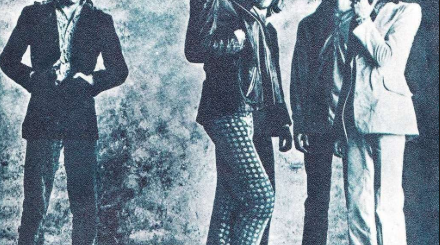Monkey Man by The Rolling Stones Lyrics Meaning – Unraveling the Enigma of an Undying Rock Anthem
Lyrics
And all my friends are junkies
That’s not really true
I’m a cold Italian pizza
I could use a lemon squeezer
What you do?
But I’ve been bit and I’ve been tossed around
By every she-rat in this town
Have you babe?
But I am just a monkey man
I’m glad you are a monkey woman too
I was bitten by a boar
I was gouged and I was gored
But I pulled on through
Yeah, I’m a sack of broken eggs
I always have an unmade bed
Don’t you?
Well I hope we’re not too messianic
Or a trifle too satanic
But we love to play the blues
But well I am just a monkey man
I’m glad you are a monkey woman too
Monkey woman too babe
I’m a monkey man
I’m a monkey man
I’m a monkey man
I’m a monkey man
I’m a monkey
I’m a monkey
I’m a monkey
I’m a monkey
Monkey, monkey
Monkey
Monkey
I’m a monkey
When you delve past the gritty guitars and raw vocal prowess intrinsic to The Rolling Stones, there lies a depth of lyricism waiting to be interpreted. ‘Monkey Man,’ a fiercely enduring track from their 1969 album ‘Let It Bleed,’ offers a candid glimpse into a frolic of metaphors and self-reflection.
This powerhouse track, meshing rock’s edge with blues’ soul, has intrigued listeners for decades. Here we peel back the layers of ‘Monkey Man,’ examining its symbolism, cultural significance, and the underlying rawness that galvanizes its standing in the Stones’ legendary arsenal.
Swagger and Satire – The Stones’ Raw Self-Portrayal
At the heart of ‘Monkey Man’ lies a blend of self-deprecation and a street-smart swagger. The Stones, known for their unapologetic hedonism and raw energy, use the analogy of a ‘fleabit peanut monkey’ to juxtapose their rockstar image with a more humbling, almost ludicrous, character.
This playful humility offers a stark contrast to the god-like status often bestowed upon rock legends, a daring move that pokes fun at themselves while maintaining their anarchic spirit. It’s a nuanced look at identity and fame that only the Stones could pull off with such brazen finesse.
The Infectious Groove and a Cry Against Conformity
Beyond the lyrics, the pulse of the song is driven by its infectious rhythm—a concoction that insists you move even as you ponder the meaning. It symbolizes the Stones’ refusal to comply with societal norms, an embodiment of the freedom they perpetually chase.
In essence, ‘Monkey Man’ becomes not just a song but a standpoint—a declaration that despite the weights of status and expectation, one can still dance like nobody’s watching, free from the cages of conventionality.
Hidden in the Blues – Subtleties of the Stones’ Inner Turmoil
The lyric ‘Well I hope we’re not too messianic or a trifle too satanic’ cuts to the crux of the Stones’ duality. It’s a line ridden with the pressure of being heralded as both saviors and sinners of the rock world, scrutinized by every gaze and opinion.
Their music, a vessel for thematic exploration, carries the burden of these extremes, while ‘Monkey Man’ acts as an outlet—a mocking confession of their human complexity and the internal and external battles that come with stardom.
Between the Lines – Psychological Depth and Drug Culture Allusions
The opening admittance, ‘all my friends are junkies,’ immediately throws a veil of drug culture over ‘Monkey Man.’ While it may denote the band’s infamous acquaintances, it also opens up a psychological playfulness, demanding attention to the realities and backgrounds fueling their work.
‘Monkey Man’ doesn’t just talk about substance use but jabs at dependency itself, metaphorically treating social and personal expectations as addictive and equally consuming—a true hallmark of the Stones’ understanding of the human condition.
Memorable Lines Echoing Through Generations
Perhaps the track’s most memorable line, ‘But I am just a monkey man, I’m glad you are a monkey woman too,’ resonates as a proclamation of shared humanity. It’s a primal, bonding cry that strips down the facades to reveal a universal kinship in our basic instincts and desires.
‘Monkey Man,’ while a product of its time, epitomizes a sentiment that transcends eras and genres. It’s the Stones’ timeless appeal that allows such lyrics to remain poignant and relatable, whether it’s 1969 or the digital age, proving the enduring legacy of their musical genius.








